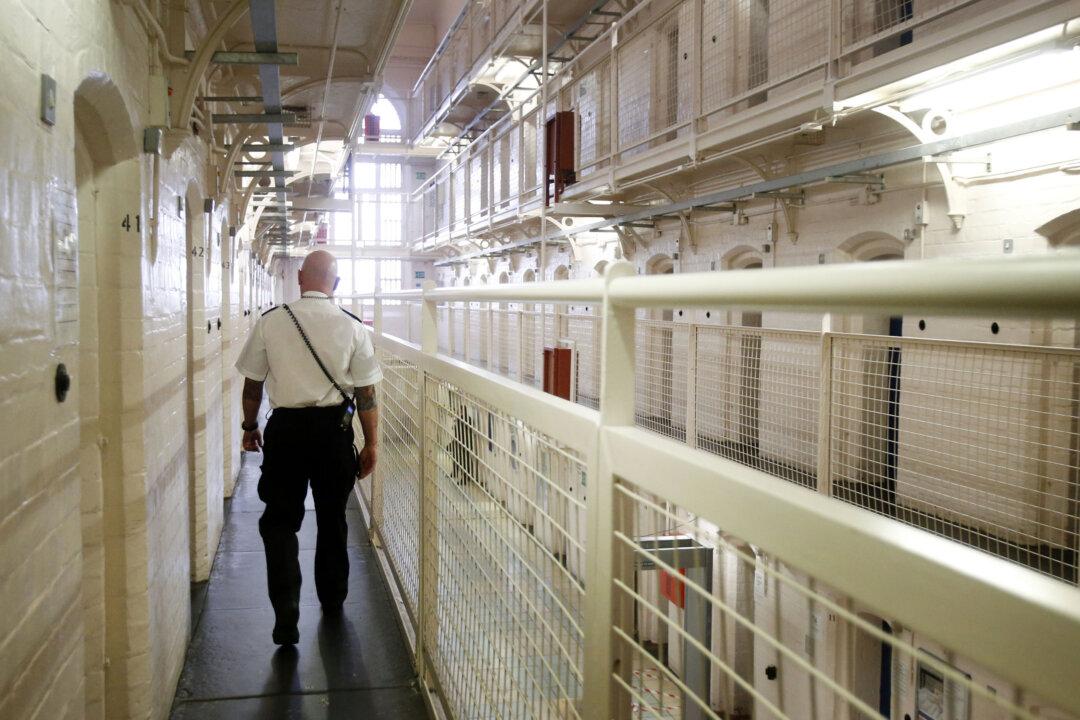An emergency measure to avoid prison overcrowding has been activated in the north of England following the large number of people charged and custodial sentences handed down in connection with rioting earlier this month.
Operation Early Dawn, a long-standing plan which allows defendants to be held in police cells and not summoned to magistrates’ court until a space in prison is available, was activated on Monday morning, the Ministry of Justice announced.
It is designed as a short-term plan for when prisons are in danger of being at full capacity and there is a risk of defendants being remanded into custody after they enter a plea.
As of Friday, 327 people were being held in prison following their involvement in the disorder that stemmed from anti-immigration protests, with more than 450 having so far appeared in court and 215 already sentenced under a fast-track judicial process.
Some of those held on remand or receiving prison sentences under a fast-tracked judicial process were convicted of offences committed online, such as inciting violence.
Policing Minister Dame Diana Johnson previously said there was sufficient capacity in England’s jails for rioters to be given custodial sentences.
System in ‘Crisis’
Announcing the emergency measure Monday, Prisons and Probation Minister James Timpson said in a statement, “We inherited a justice system in crisis and exposed to shocks. As a result, we have been forced into making difficult but necessary decisions to keep it operating. However, thanks to the hard work of our dedicated staff and partners, we have brought forward additional prison places and now introduced Operation Early Dawn to manage the pressure felt in some parts of the country.”National Police Chiefs’ Council custody lead Deputy Chief Constable Nev Kemp said: “We are working closely with criminal justice system partners to manage demand in the system and ensure that the public are safe. Policing will continue to arrest anyone that they need to in order to keep the public safe, including policing protests and events and ensuring that people are arrested as expected.”
‘Biggest Influx for Some Time’
Speaking to BBC Radio 4’s “Broadcasting House” programme on Sunday ahead of the government’s announcement, Mark Fairhurst, the national chairman of the Prison Officers’ Association, predicted that Operation Early Dawn would have to be implemented.“Last week we had the biggest influx of new receptions I’ve seen for quite some time. We had 397 new receptions. As of Friday we only had 340 spaces left in the adult closed male estate which is feeling the most pressure.
“You’re now clogging up police cells, so they haven’t got the power to arrest people and put them away in a police cell. It has a massive knock-on effect on the entire criminal justice system.”
Fairhurst warned the measure would put increased pressure on police forces and compel officers to limit the number of arrests they make in order to free up cell space.
‘Unacceptable’ Overcrowding, Self-Harm, Violence
Last month, the Ministry of Justice said violence and self-harm in prison had risen to “unacceptable” levels as overcrowding pushed jails to the “point of collapse.”Justice Secretary Shabana Mahmood announced plans to cut the proportion of the sentence some criminals must serve behind bars from 50 to 40 percent.
The temporary move—which does not apply to those convicted of sex offences, terrorism, domestic abuse or some violent offences—is expected to result in some 5,500 offenders being released this September and October.
The government has pledged to recruit an additional thousand probation officers to help manage those offenders released early.







